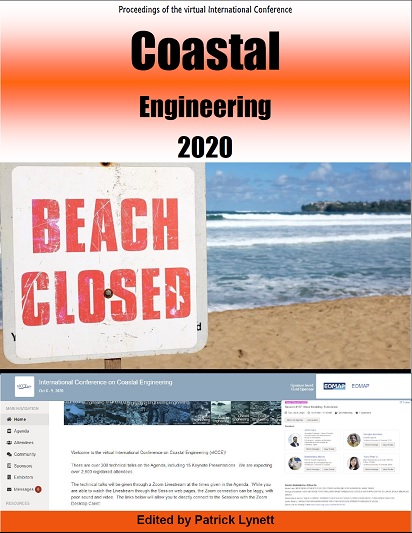Abstract
The main drivers of coastal morphology evolution related to climate change are wave characteristics, storm frequency/intensity and watershed runoff. Estuaries and deltaic plains, strongly affected by the sea-level change, are highly vulnerable to future climate change impacts. Karasu Beach, located in the southwestern Black Sea, Turkey, is impacted by the Sakarya River plume. River discharge and energetic wind and wave climate are among the major physical processes that control the sediment transport pattern along the shoreline. Due to the decrease of sediment runoff to the coast related to the construction reservoirs and a harbor, significant erosion occurred, with a 7.5 m/year retreat of the coastal line. The erosion problem threatens the coastal area as well as the deep spot.Recorded Presentation from the vICCE (YouTube Link): https://youtu.be/DfYQlbOXEh8
References
Wong et al. (2014): Coastal systems and low-lying areas. In: Climate Change 2014: Impacts, Adaptation, and Vulnerability. Part A: Global and Sectoral Aspects. Cambridge University Press, Cambridge, United Kingdom and New York, NY, USA, pp. 361-409.
Yuksel, Tan, Ayat, Guner, Aydogan, Seker (2013): A Coastal Management Case Study in Karasu at Black Sea Region. Proceedings of the 23rd International Offshore and Polar Engineering.
Authors retain copyright and grant the Proceedings right of first publication with the work simultaneously licensed under a Creative Commons Attribution License that allows others to share the work with an acknowledgement of the work's authorship and initial publication in this Proceedings.

